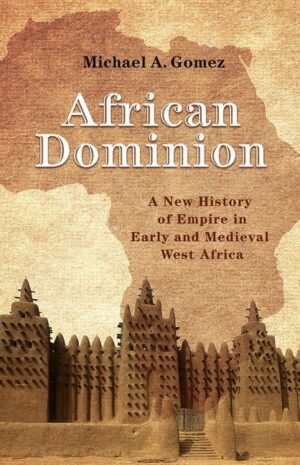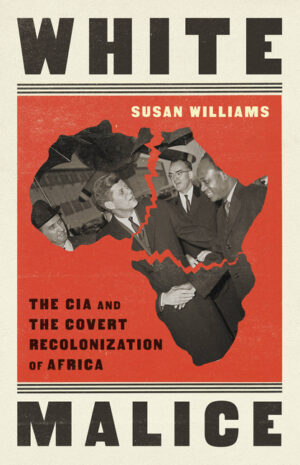"Soyinka, brilliant as always, clearly and succinctly introduces the reader to the political situation of his native Nigeria....An important book and absolutely essential in understanding the crisis that faces not just Nigeria, but Africa as a whole."–
Emerge"Crammed with vivid observations that will add life to moribund, academic debates over national identity....By the last page of Mr. Soyinka's book, I felt myself both enriched and exhausted."–Robert D. Kaplan,
The New York Times Book Review"Soyinka's political writings have always combined polemical force with expository grace, and his stinging characterization of Nigeria as a failed state is no exception."–
Foreign Affairs"His words command attention and respect....In clear prose, it sketches the vicissitudes of Nigeria intermixed with global topics."–
CHOICE"Provides valuable, in-depth, as well as introductory, information on Nigeria....
The Open Sore of a Continent is a timely addition to world affairs and the state of nations. Failure to heed Soyinka's words and insight could prove costly to a world that has seen too many Bosnias, Chiles, and Somalias."–
Copley News Service"Tak[es] full measure of the predicament of African's most populous country....For the reader, what is perhaps most interesting is Mr. Soyinka's colorful account of how Nigeria, the world's seventh largest oil producer, and a nation that less than a generation ago seemed on the verge of industrialization, fell back into the ranks of the world's least developed countries and has become a near-pariah state."–Howard W. French,
The New York Times"The 1986 Nobel laureate uses his country's reversion to dictatorship to examine the very concept of nationhood, in which he still sees possibilities."–
The New York Times Book Review (And Bear in Mind)
"
The Open Sore of a Continent is crammed with vivid observations that will add life to moribund, academic debates over national identity. Its narrative is applicable not only to postcolonial Nigeria but to the former Yugoslavia and the former Soviet Union as well, places where institutional and economic decline sharpened ethnic divisions and cracked the facades of imposed national identity. By the last page of Mr. Soyinka's book, I felt myself both enriched and exhausted."–Robert D. Kaplan,
The New York Times Book Review"These powerful essays offer a disturbing portrait of a nation operated for the benefit ofa narrow oligarchy and thoughtful musings on the nature of nations."–
Booklist starred review (November 1996)
"Nobel Prize-winning Nigerian playwright and essayist Soyinka has been protesting the horrendous and tragic politics of his native country for more than 30 years, and the sting of his lashing wit, depth of his profound knowledge, heat of his rage, and beauty of his eloquence are all evident in this instructive and bracing jeremiad."–
Booklist"An eloquent voice of protest against Nigerian authoritarianism and keptocracy....Here, [Soyinka] collects previous lectures in which he describes Nigeria's recent predicament, condemns the country's illegitimate leaders and, muses about questions of nationalism and international intervention."–
Publishers Weekly"Nobelist Soyinka takes on the despotic regime of his native Nigeria in this series of scathing jeremiads....As Soyinka traces the roots of what went wrong in 1993, he also meditates on the meaning of nationalism and nationhood. This is a vital issue for a country as divided as Nigeria, its arbitrary borders enclosing innumerable tribes as well as three major religions."–
Kirkus Reviews"Soyinka's main subject is nationalism, and his fearless discussion of its vicissitudes will likely be the most lasting contribution of this book. Africans are not the only people who need to rethink the idea of the nation; Soyinka in his bravery gives all readers a chance to examine the meaning of late-century patriotism."–he Village Voice
"Soyinka's powerful prose brilliantly sketches the dilemmas plaguing Africa's demographic giant and reveals the stark choices facing Nigeria....Soyinka's political writings have always combined polemical force with expository grace, and his stinging characterization of Nigeria as a failed state is no exception."–
Foreign Affairs"This remarkable collection of essays...often assumes a prophetic air–a kind of prophecy akin to that of Old Testament seer, who were given as much to social and political analysis as they were to predicting the future–and reveals that there is hope is places like Nigeria, contained in the tireless quest for humanitarian civility in the face of corruption and dastardly political intrigue."–
The Washington Post"What finally gives this small, intense volume such ethical authority is that Soyinka's vision is addressed to the human race. He leaves no doubt that the line in the old Nigerian national anthem–though tribe and tongue may differ, in brotherhood we stand'–could and should apply to all of us."–
Worldview





